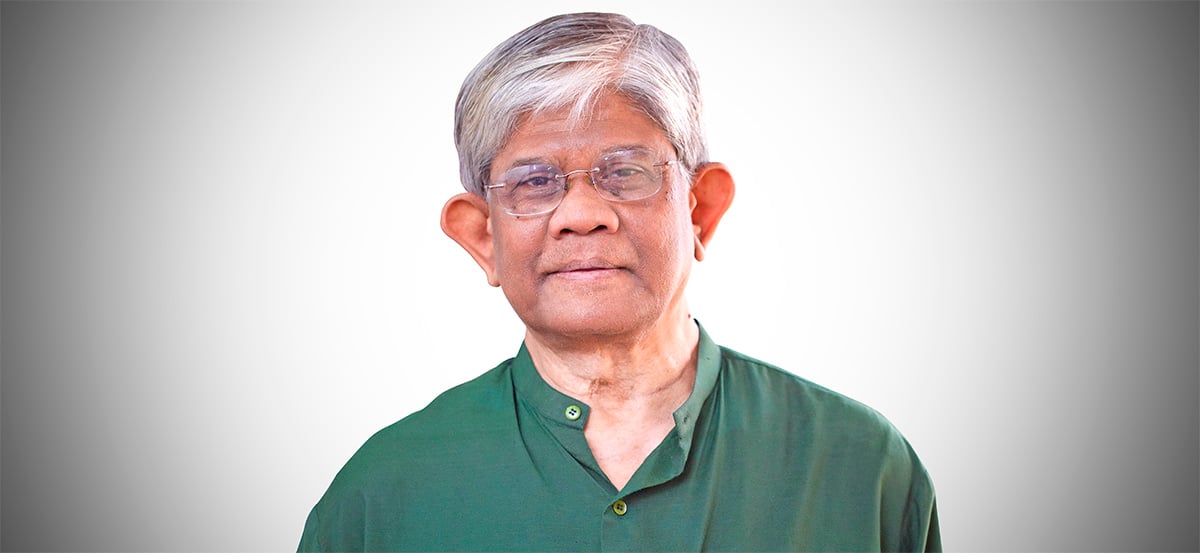
DHAKA, Nov 15, 2024 (BSS) – Finance Adviser Dr Salehuddin Ahmed has said that the government is happy regarding the reform initiatives of the banking sector although there are constraints.
"The government is happy regarding the reform initiatives of the banking sector although there are constraints . . . the development partners like the World Bank and the IMF are also keeping eyes on the financial, banking and tax revenue sector reforms," he said.
The finance adviser made the comments during an interview with BSS at his secretariat office marking the completion of three months or 100 days by the interim government.
During the annual meetings of the IMF and the World Bank, Dr Salehuddin said he talked with the high ups of the World Bank, ADB, IsDB, OPEC Fund and all of them had assured the government of extending all possible cooperation.
A good number of banks are in bad shape due to various reasons like for more liabilities than deposits and it is very unfortunate, he cited.
He said the Bangladesh Bank has already reconstituted the boards of a couple of banks while the government is planning to frame the 'Stolen Assets Recovery Act', but the issue of repatriating assets would take certain time.
The adviser opined that saving the fragile banks through monetary support from strong banks is not a sustainable measure and also not a permanent solution as those strong banks would also have to be viable.
The central bank is also planning on how to sell the bad assets while it is also trying to bring the weak banks to an optimum level, he added.
He observed that it is a bit difficult to keep alive the weak banks for long while the central bank is also trying to form an 'Asset Management Company'.
Replying to another question, he said the confidence of the common people on the banks would be restored again if the SMEs get special financing and thus more employments are generated and small entrepreneurs get necessary funding.
During his stay in Washington last month, the finance adviser said that he got positive response from the lenders and others concerned in repatriating siphoned off money as they had suggested restoring more discipline in the banking sector, taking decisions about the bad banks, lowering down the liabilities of banks, and thus restoring confidence of the clients.
Regarding money laundering, he said the government has already formed a taskforce while the lenders like the IMF, US Treasury and the UK have assured that they could lend their financial experts to support Bangladesh.
He said the government has cleared most of the dues in the power and energy sector, including that of the International Islamic Trade Finance Corporation (ITFC) as well as in import of fertilizer while the procurement proposals in the Government Purchase Committee do not remain as arrears.
"The reserve is at a satisfactory level . . . I'll extend thanks to the expatriates Bangladeshis for boosting our foreign currency reserves ... export earnings are yet to decline as the exporters are still receiving tax incentives," he said.
About the issue of power import from Adani, he said that the previous government did not regularly pay the dues and successively the interim government inherited the arrears.
The adviser said now Adani Power has been assured that the government would pay the remaining dues.
"Our commitment towards the donors is hundred percent, otherwise they wouldn't come in large numbers," he said, adding that the government has assured them that Bangladesh would not default like Pakistan and Sri Lanka.
About the burden and commitments of foreign loans, Dr Salehuddin said that the government has inherited many things like the dues of ITFC and Adani Power from the previous regime.
Besides, he said the fresh imports would also increase the costing, adding, "Definitely pressure is mounting on us . . . the debt to GDP ratio of the country is about 38% which is even more higher in Greece, Italy and even in the USA".
He said, "We don't want to put burden on the shoulders of the future generation . . . we have requested lenders after seeing our debt sustainability ... we have sought $3 billion from IMF alongside more support from the WB and ADB and they will extend support to us. We've such capacity to repay those loans."
If the government can boost the FDI and FPI, then the foreign currency reserves would increase further side by side efforts are on to diversify the exports, he added.
The country's foreign exchange (forex) reserves have taken an uptick, driven by a rebound in remittances.